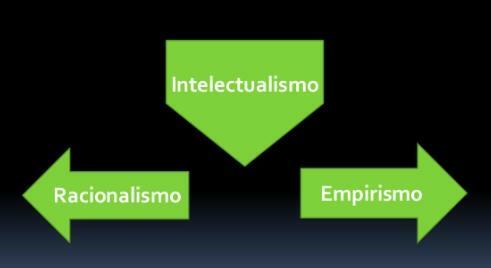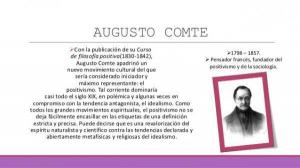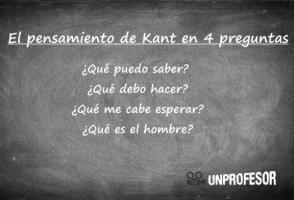Discover what is INTELLECTUALISM in philosophy

Image: Carrera Pedagogy
In this lesson from a TEACHER, we explain what is intellectualism in philosophy, a term that refers to any position that gives primacy to the intellect, to reason, vis-à-vis the will or human emotions, and encompasses both the field of knowledge and moral. The main representative of intellectualism is Socrates, who affirmed that people who know good, behave well, and badly, those who do not know it. That is, ignorance would be responsible for the bad actions of human beings. Plato, shares the theory of Socrates and goes further, defending that only those who know the most, the philosophers, can hold the government of the polis. If you want to know more about intellectualism, continue reading this lesson.
Index
- Socratic moral intellectualism
- Moral intellectualism and anthropological dualism
- Intellectualism in Plato
- Criticism of Socratic intellectualism
Socratic moral intellectualism.
SocratesHe affirmed that people who knew good did good, and on the contrary, that those who did not know it, did bad. Therefore,
the ignorance, the ignorance of the good, I would be behind the bad deeds human.This is what is known by the name of moral intellectualism Socratic, according to which, virtue is related to knowledge. This knowledge about what is ethical is not theoretical, but practical and consists of knowing how to act in the best way in each case.
Plato, the most important disciple of Socrates, he developed the ideas of his teacher, which gave one adapting them to politics. For the Greek, the best government, the only one that would be able to maintain the common good in the ideal polis, would be the government of philosophers, that is, of the best, of those who know the most, who would go on to lead the polis, after a training period of 30 years. He thus defends a aristocracy of philosophers, rejecting any other form of government, because all of them degenerate.
"Ignorance is the seed of all evil" (Plato)
Socratic moral intellectualism identifies virtue and knowledge. It is enough to know what is good to do good, Socrates said, and bad actions are born from ignorance. To act virtuously, it is necessary, he thought, to know good and justice.
"Intelligence is a virtue that allows you to direct your own life" (Plato)
Moral intellectualism and anthropological dualism.
To develop his theory, Socrates starts from anthropological dualism. That is, he affirmed that the human being is a compound of body and soul, the first being the material and mortal part, which belongs to the sensible world and the second, the soul, the spiritual and immortal part and which belongs to the intelligible world or world of ideas or essences, to which it will return once it has disposed of the body, after a path of purification. This is the true mission of the soul.
With the phrases“cknow yourself”Socrates is giving value to the internal part of the human being, to the detriment of the external part, of his corporality. The knowledge of good and justice will inevitably lead to its realization. Therefore, the knowledge of the good is the foundation of moral experience. Socrates, as Plato says in his dialogues, puts it as follows.
“When one of you is ill he does not propose a vote among the family members to establish what remedy is adequate to cure the disease: it happens rather than calling the doctor and submitting to his judgment and recommendations; When an army wants to defeat the enemy, a popular consultation is not held to establish the way of attacking, it is the strategist who decides how to lead the soldiers and raise the battles; When we want to build a building, we don't vote to decide how to build it, we let the architect impose his criteria.”
Intellectualism in Plato.
Plato proposes that they be the philosophers, the wise men, the rulers of the city ideal, and thus expresses it in the Republic, his most important work and in which he tries to lay the foundations of what would be the perfect polis, that governed by rulers who rule for the common good of all citizens, and not just some few. For this reason, it rejects the other forms of government.
Starting from the division of the soul, Plato affirms that harmony between all members of society is only achieved if each individual takes care of what he is capable of. Thus we have:
- Rationed soull (reason or intelligence) - virtue: knowledge of the truth - function: wisdom and prudence - rulers
- Irascible soul (encouragement) - virtue: strength and courage - function: guardians
- Concupiscible soul (appetite) - virtue: moderation and temperance - function: producers, artisans and farmers
The Justice it is the general virtue that unites and harmonizes all the others. These functions are not randomly assigned, nor are they chosen by the citizens, but rather it is up to the leaders to detect and develop them through education. Only in this way is happiness possible within the polis.
Criticism of Socratic intellectualism.
Besides Socrates and Plato, other philosophers defended the intellectualist thesis. But AristotleHe did not share this point of view, considering that the knowledge of good and justice was not enough to act correctly. In addition, the stagirite affirmed, it is necessary to want to do so, thus granting primacy to the will of the human being over knowledge.
Aristotle and Saint Thomas of AquinoThey will defend that experience and reason have to work together on the path of knowledge.
If you want to read more articles similar to What is intellectualism in philosophy, we recommend that you enter our category of Philosophy.
Bibliography
Real. G, Antiseri. D. History of Philosophy, Vol. I. Editorial Herder. 2010



